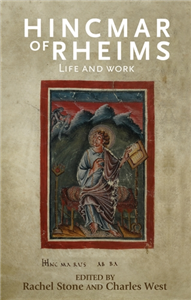Description
More Information
Rights Information
Albania, Algeria, Angola, Argentina, Armenia, Australia, Austria, Bahrain, Belgium, Belize, Benin, Bolivia, Bosnia and Herzegovina, Botswana, Brazil, Bulgaria, Burkina Faso, Burundi, Cameroon, Canada, Cape Verde, Central African Republic, Chad, Chile, China, Colombia, Comoros, Congo [DRC], Congo, Republic of the, Costa Rica, Ivory Coast, Croatia, Czech Republic, Denmark, Djibouti, Ecuador, Egypt, El Salvador, Equatorial Guinea, Eritrea, Estonia, Ethiopia, Faroe Islands, Finland, France, French Guiana, Gabon, Gambia, Georgia, Germany, Ghana, Greece, Guatemala, Guinea, Guinea-Bissau, Guyana, Honduras, Hong Kong, Province of China, Hungary, Iceland, India, Indonesia, Iran, Iraq, Ireland, Israel, Italy, Japan, Jordan, Kazakhstan, Kenya, Kuwait, Latvia, Lebanon, Lesotho, Liberia, Libya, Lithuania, Luxembourg, Macau, China, Macedonia [FYROM], Madagascar, Malawi, Malaysia, Mali, Malta, Mauritania, Mauritius, Mayotte, Mexico, Mongolia, Montenegro, Morocco, Mozambique, Namibia, Netherlands, New Zealand, Nicaragua, Niger, Nigeria, Norway, Oman, Pakistan, Panama, Paraguay, Peru, Philippines, Poland, Portugal, Puerto Rico, Qatar, Reunion, Romania, Russia, Rwanda, Saint Helena, Sao Tome and Principe, Saudi Arabia, Senegal, Serbia, Seychelles, Sierra Leone, Singapore, Slovakia, Slovenia, Somalia, South Africa, South Korea, Spain, Sri Lanka, Sudan, Suriname, Swaziland, Sweden, Switzerland, Syria, Taiwan, Province of China, Tanzania, Thailand, Timor-Leste, Togo, Tokelau, Tunisia, Turkey, Uganda, Ukraine, United Arab Emirates, United Kingdom, United States, Uruguay, Venezuela, Vietnam, Western Sahara, Yemen, Zambia, Zimbabwe, South Sudan
Endorsements
Archbishop Hincmar of Rheims (d. 882) is a crucial figure for early medieval European history. As an archbishop for nearly forty years, he shaped the times in which he lived, advising and admonishing kings, playing a leading role in the Frankish church, and intervening in a range of political and doctrinal disputes. Hincmar also shaped how ninth-century events would later be seen by historians up to the present day by writing historical accounts such as the Annals of St-Bertin, and by carefully preserving dossiers of material for posterity. He is a key source for political, social and religious history in the period, providing information on everything from papal politics to the abduction of women and the role of parish priests. This book puts the archbishop himself centre-stage, bringing together the latest international research across the spectrum of his varied activities, as history-writer, estate administrator, hagiographer, canonist, pastorally-engaged bishop and politically-minded royal advisor. For the first time since Jean Devisse's magisterial studies of the 1970s, it offers a three-dimensional examination of a controversial figure whose actions and writings in different fields are often studied in isolation, at the cost of a holistic appreciation. Combining research from recognised experts (such as Janet Nelson, Philippe Depreux and Mayke de Jong) as well as early career historians, it will be an essential companion for all those interested in the Carolingian world, and early medieval Europe more broadly.
Reviews
Archbishop Hincmar of Rheims (d. 882) is a crucial figure for early medieval European history. As an archbishop for nearly forty years, he shaped the times in which he lived, advising and admonishing kings, playing a leading role in the Frankish church, and intervening in a range of political and doctrinal disputes. Hincmar also shaped how ninth-century events would later be seen by historians up to the present day by writing historical accounts such as the Annals of St-Bertin, and by carefully preserving dossiers of material for posterity. He is a key source for political, social and religious history in the period, providing information on everything from papal politics to the abduction of women and the role of parish priests. This book puts the archbishop himself centre-stage, bringing together the latest international research across the spectrum of his varied activities, as history-writer, estate administrator, hagiographer, canonist, pastorally-engaged bishop and politically-minded royal advisor. For the first time since Jean Devisse's magisterial studies of the 1970s, it offers a three-dimensional examination of a controversial figure whose actions and writings in different fields are often studied in isolation, at the cost of a holistic appreciation. Combining research from recognised experts (such as Janet Nelson, Philippe Depreux and Mayke de Jong) as well as early career historians, it will be an essential companion for all those interested in the Carolingian world, and early medieval Europe more broadly.
Author Biography
Charles West is Senior Lecturer in the Department of History at the University of Sheffield; Rachel Stone is a Postdoctoral Research Associate at King's College, London
Manchester University Press
Manchester University Press is a leading UK publisher known for excellent research in the humanities and social sciences.
View all titlesBibliographic Information
- Publisher Manchester University Press
- Publication Date August 2016
- Orginal LanguageEnglish
- ISBN/Identifier 9781526106544 / 152610654X
- Publication Country or regionUnited Kingdom
- Pages328
- ReadershipGeneral/trade; College/higher education; Professional and scholarly
- Publish StatusPublished
- Dimensions216 X 138 mm
- Reference Code8480
Manchester University Press has chosen to review this offer before it proceeds.
You will receive an email update that will bring you back to complete the process.
You can also check the status in the My Offers area

Please wait while the payment is being prepared.
Do not close this window.



